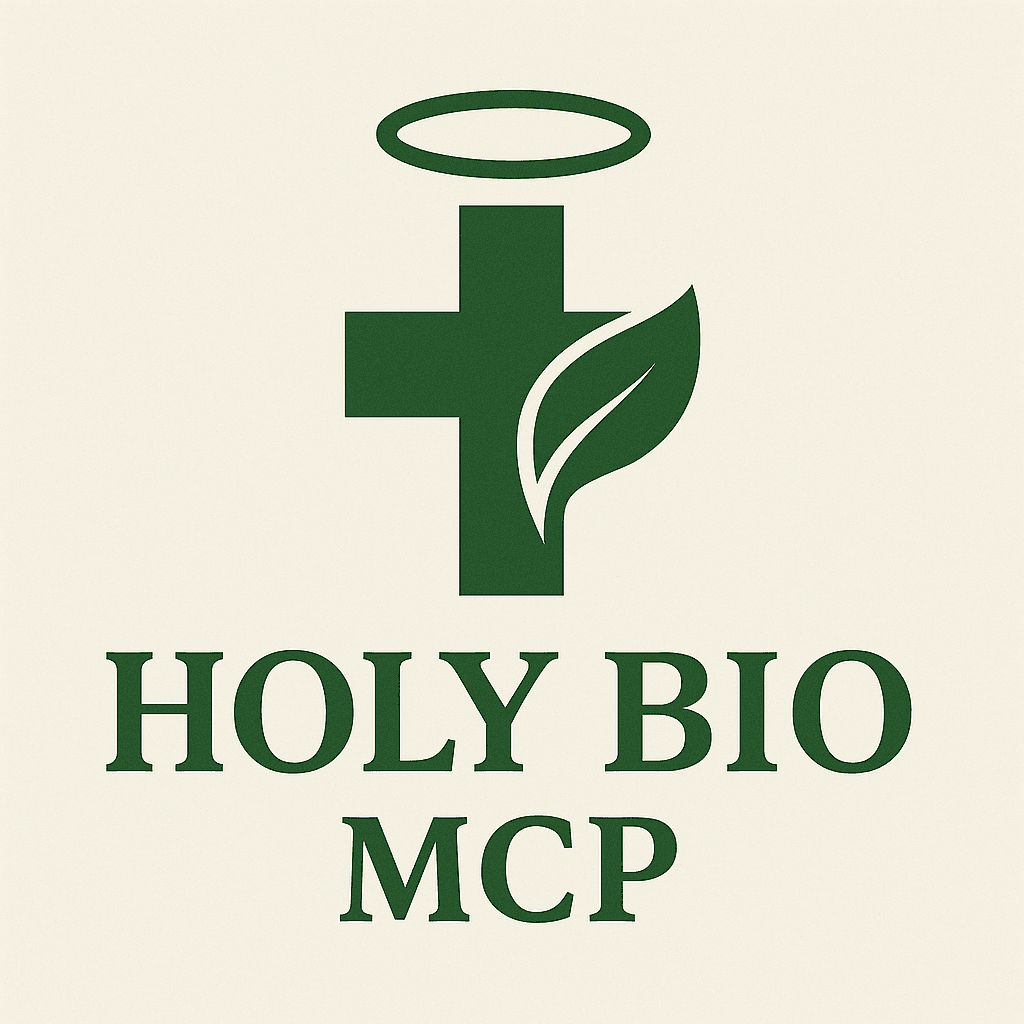Holy Bio MCP
Bringing together all your favourite tools
Created on 6th June 2025
•
Holy Bio MCP
Bringing together all your favourite tools
The problem Holy Bio MCP solves
The Problem & Our Solution
Biology's vast complexity has created a fragmented ecosystem of specialized tools, libraries, websites, and databases. Based on our team's experience, researchers often find themselves juggling 10-15 of these different resources for a single project, manually copying data between them. It’s a massive time-sink that gets in the way of real scientific discovery.
We built Holy Bio MCP to fix this. The impact is a simple but dramatic shift in the research workflow:
- Before: Researchers spend 60-80% of their time on manual data wrangling across a dozen different resources.
- After: A single, conversational command executes the entire workflow: "Find longevity genes → get their 3D structures → find drugs that target them → analyze their interactions."
This is made possible through several concrete applications:
- Interactive Research: Ask complex, multi-step questions in plain English within a chat client and get back synthesized answers.
- AI-Enhanced Development: Supercharge your IDE (like Cursor) with direct, in-editor access to our entire suite of bioinformatics tools.
- Automated Agentic Workflows: Use the framework as a foundational building block for autonomous research agents in platforms like ElizaOS or AutoGen.
To enable this, we developed Holy Bio MCP. The framework was born during the Bio x AI Hackathon from our practical experience building LLM agents at the Longevity Genie project, IBIMA, and the Systems Biology of Aging Group.
What We Built
Our framework consists of two core components: a federation of five specialized servers and a plugin to connect them to the bio.xyz ecosystem.
Holy Bio MCP usage in genetics
Holy Bio MCP usage in longevity and pharmacology
1. A Federation of 5 Specialized MCP Servers
gget-mcp
(Genomics Toolkit): For core genomics tasks like BLAST, AlphaFold structure retrieval, and enrichment analysis.biothings-mcp
(Database Hub): Provides unified access to foundational databases like UniProt, PubChem, and ClinVar.opengenes-mcp
(Longevity Genetics): A specialized database to query the genetics of aging and longevity.pharmacology-mcp
(Drug Discovery): Accesses The Guide to PHARMACOLOGY for data on drugs, targets, and ligands.synergy-age-mcp
(Interaction Detective): Uncovers synergistic and antagonistic genetic interactions in longevity.
2. The Biostratum Plugin for ElizaOS
To connect our framework to this hackathon's ecosystem, we also built the Biostratum Plugin. It's a native MCP plugin for ElizaOS designed to integrate our entire server federation with bio.xyz and the broader web3 landscape.
Challenges we ran into
Challenges We Overcame
-
Navigating the ElizaOS Framework: As Python-native developers, we faced a steep learning curve. The primary hurdles weren't just TypeScript, but the framework's relative immaturity as an AI agentic library compared to established Python tools—its most mature component is its Web3 integration. This resulted in us spending significant time navigating stale readmes, duplicated starters, and docs that didn't match the current API to get a basic agent working.
-
The Python Imperative: The world of ML and bioinformatics runs on Python. Rewriting established scientific libraries in JavaScript would be impractical and alienate our community of contributors. This reinforced our core strategy: encapsulate our specialized bioinformatics tools into Python-based MCP servers and use ElizaOS as the conversational Web3-enabled orchestrator.
-
Making the Agent Reliable: As we connected more tools, the agent's LLM would get confused and choose the wrong function. We solved this with rigorous testing and relentless prompt engineering to ensure the agent could reliably execute complex, multi-step workflows.
Tracks Applied (3)
Scientific Outcomes
Auxiliary Goals
Scientific Outcomes
Solana Foundation

